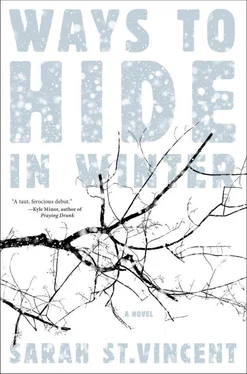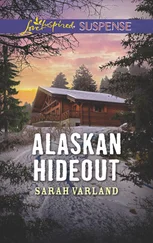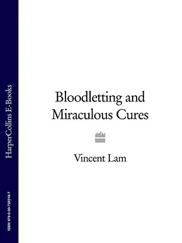I lowered myself onto it and closed the door.
“Your wife,” I said in the silence.
I could tell he was looking at me, but I refused to look back.
His voice was small. “Yes?”
“You left her there.”
His gaze shifted away. “Yes.” The word seemed to catch in his throat. “It was dangerous to leave. And she didn’t know. About…any of it.” His hands gripped together in his lap. “I thought that would protect her.”
The rain spattered the windshield. “Did it?”
He looked down at his thumbs.
I turned the key and reached for the gear shift, flicking my turn signal even though no one was there. We pulled onto the road.
“Are you angry?” the stranger asked as we pulled into the lot and confronted the silent brick hulk of the hostel.
“Angry’s not the word,” I said. “Let’s let it go for tonight. We can talk tomorrow.”
“Are you sure? I—”
“Yes. I’m sure.” I turned off the engine. “I need some time.”
The room Martin had given me was dark and cold. Mechanically, I stripped, pulled on my pajamas, brushed my teeth in the harsh light of the bathroom, lay down on the hard mattress. There was no moon outside the window, just the rainclouds. The first two pills didn’t work, and the second two didn’t, either. I couldn’t stop seeing the photographs with their raw, broken skin. The blue eyes of the doctor as he’d bent over me. The priest with his frightened face and rumpled sweater, standing alone in the light of the bulb that hung over the rectory door, realizing his mistake much too late.
Finally, upending the paper bag into my palm, I swallowed a handful of the white ovals without counting them. Gathering myself into a knot, I shivered, breathing in the slight wild-animal smell of the blanket. When the blackness hit me, it hit me hard, sending me sailing off into a place where there was no thought.
And I was grateful.
In the early afternoon, I awoke slowly, rising into consciousness like a diver floating toward the surface of the sea. There was a sharp, repeated sound somewhere in the distance, hard and regular, like marching. The prisoners, I thought groggily, imagining them emerging from the mist in the uniforms they would once have had, the fabric in tatters, their hands behind their heads. But no, it wasn’t them. It was knocking, someone knocking on the door of the room that it took me some time to realize wasn’t my own.
“Hey,” Martin called.
I sat up and walked unsteadily to the door. The light from the windows was blinding.
“Are you all right?” He looked me up and down. “I just realized you weren’t down at the store.”
“I’m taking a sick day,” I said, or tried to.
He was still looking at me, worried and uncertain, when I closed the door.
By the time I stepped out of the shower, I felt steadier, although I seemed to be having trouble grasping things and it took me a long time to get dressed. I sat on the edge of the bed, feeling as if I were outside my own body, struggling to pull my thoughts from circles into a straight line. Gradually, the previous evening came back to me.
At one point, there were footsteps that paused outside the door, soft and rubbery-sounding. I didn’t move, and eventually they went away.
I drank a glass of water, gazing into it between sips. Then I reached for my keys and left.
The drive down the mountain passed before I quite knew it, the car seeming to float over the road. I pulled into the gas station and parked by the pay phone, my stomach empty and my hair still wet.
The phone wasn’t in a booth; it was just mounted on top of a short pole. I stood and looked at it, fingering the coins I had found in my pocket.
I picked up the receiver, hearing the dial tone.
Then I let it drop again.
Massaging my forehead, I drifted into the convenience store and bought a pack of Marlboro Reds. There was a line of long parking spaces for tractor-trailers on the other side of the lot, and I moved the car there, in a corner, up against the grass. I climbed onto the hood and sat back against the windshield, pulling on a cigarette, my legs stiff from the horse ride I could hardly believe had happened just the day before. The sunlight flashed on the door of the convenience store as it opened and closed, admitting the stream of men and women who were going about their days.
The cigarette burned down to the filter. I stubbed it out on the sole of my shoe and got back into the car. There were too many people here; I needed somewhere quieter, more alone. It was like a deep internal itch, like the hard-edged restlessness I got when I didn’t take the pills.
I remembered where I’d been when I’d first seen the other photos, the ones the archaeologist had mentioned while I was cooking hamburgers in the store. It was spring; I’d been in my own empty kitchen, sitting by the table, a few days before I let the bank take the house. Almost all the other furniture was already gone, either moved to my grandmother’s basement or—in most cases—sold. I myself had already moved into the room at my grandmother’s and almost never came back. There were cobwebs in the corners, dust in the sink, newspapers piled on the front step in their orange bags. I’d brought the papers in and, already fatigued from the effort of walking, dropped them on the table. As I sat there, I’d grabbed the one that looked the least faded. And there they were, on the front page, the pictures. The worst ones were on the inside, so children wouldn’t see them. Naked men in pyramids. Men dragged at the ends of leashes, threatened by dogs, forced to touch themselves, hooded and strung with electrical wires. I’d sat there and absorbed the colors, the grinning people in uniform, the terror of men who flattened themselves against a wall. Then I’d looked out the window for a long time.
Abu Ghraib. In other places, where the TV was on, I heard people talking about those pictures—the newscasters on those shows where the men always wore suits and the women wore bright short dresses, as if they were flowers. I heard the men on the radio talk about them, too, the men who always shouted, who were always so sure they were right.
They all seemed to assume they knew what we—people like me—thought, because of who we were. It didn’t seem to occur to them that we could think differently. That we could look at something through different eyes. That we could stay up at night, imagining or remembering, asking ourselves questions.
They’d sold us a bill of goods; that’s what I thought. All of them. They sold us the army and sent the people we loved off to die awful deaths for reasons that didn’t hold up. They sold us pain and said it was fine. They had such contempt for us, and they thought we didn’t see it. Just because we lived where we lived and were who we were. They didn’t think any of us could look at such horror and see something in it that looked familiar, something that made us recoil. They didn’t have those kinds of imaginations.
And I faulted them for it. I blamed them in a way that was clear-eyed and hard.
They thought I was stupid and gullible, that I moved through life like a block, full of anger at the things they told me to be angry at and unable to feel anything else. They thought I didn’t know when something was inhuman or unjust.
They were wrong.
There was a rest stop along the highway, a patch of grass and trees with a small shelter housing the bathrooms and vending machines. I pushed my way through the door, approaching the phone in its shadowed corner. The floor beneath it was strewn with candy-bar wrappers, crushed paper cups, black clots of mud.
I stood there for a long moment, seeing myself as if from the other end of the room. My mind still felt as if it were suspended by threads, but also, I thought, had a clarity it seldom had.
Читать дальше












